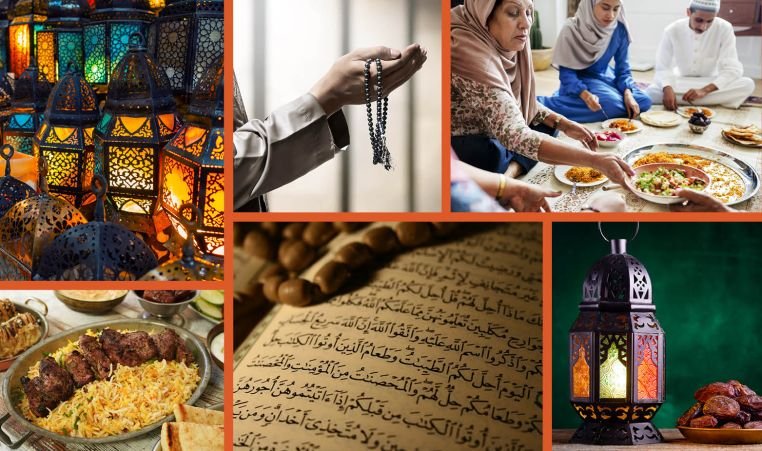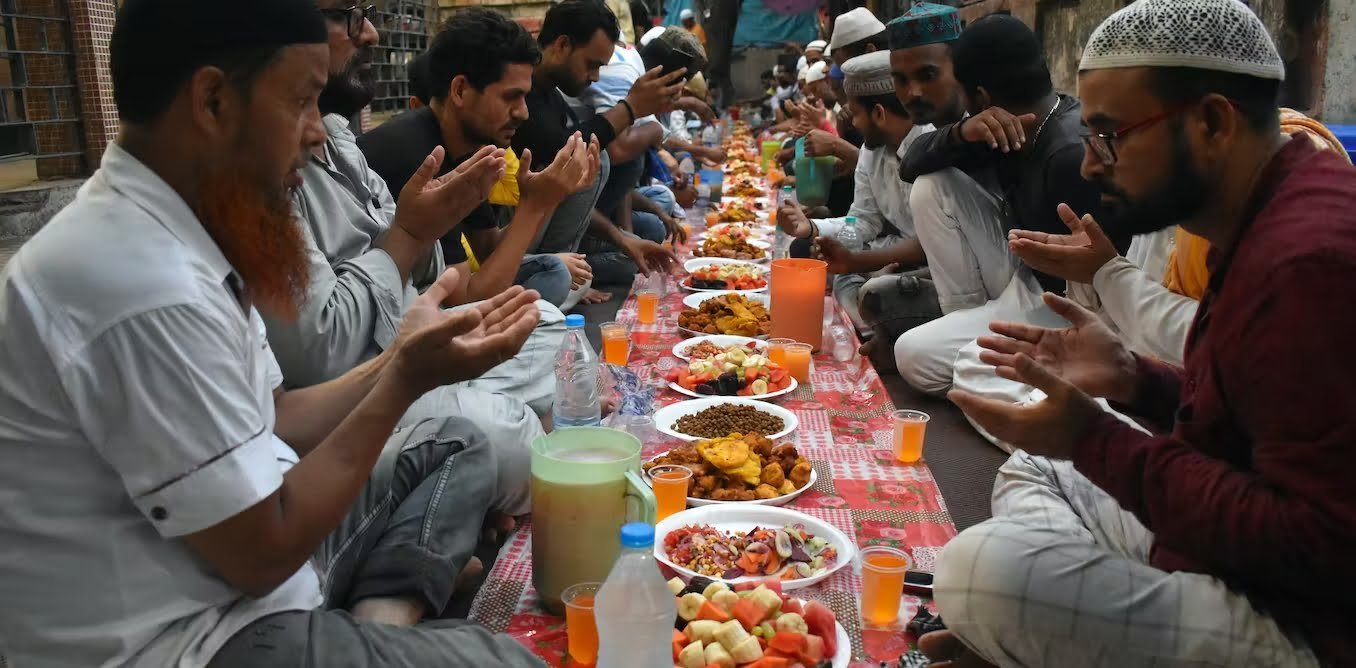
Ramadan is the ninth month of the Islamic lunar calendar and holds immense significance for Muslims worldwide. It is a month of fasting, prayer, reflection, and self-improvement. During this sacred time, Muslims aim to strengthen their connection with Allah, seek forgiveness, and develop a deeper understanding of their faith. In this comprehensive guide, we will explore the various ways to spend your Ramadan and make it a spiritually enriching and rewarding experience.
Table of Contents
Sincere Intentions (Niyyah)
The journey of Ramadan begins with a sincere intention. Approach this month with the intention of purifying your soul, seeking Allah’s mercy, and striving for personal growth. Renew your faith and remember that every action you undertake should be for the sake of Allah.
Fasting (Sawm)
Fasting during Ramadan is one of the Five Pillars of Islam. From dawn (Fajr) until sunset (Maghrib), Muslims abstain from food, drink, and other physical needs. Fasting is not just a physical act but a spiritual one, fostering self-discipline and self-control.
Prayers (Salat)
Maintain your daily prayers consistently during Ramadan. Attend the five obligatory daily prayers and strive to perform them with devotion and concentration. Praying in congregation at the mosque can strengthen your connection with the Muslim community.
Night Prayers (Qiyam-ul-Layl or Taraweeh)
The Taraweeh prayers are a unique feature of Ramadan. These extra nightly prayers offer an opportunity to recite and reflect on the Quran. Participating in Taraweeh at the mosque or at home can be a spiritually uplifting experience.
Quran Recitation
Make Quran recitation a daily habit during Ramadan. Reading the Quran with understanding and reflection allows you to connect with its timeless message. Set a goal to complete the Quran during the month.
Dhikr and Du’a
Engage in Dhikr (remembrance of Allah) throughout the day and make Du’a (supplication) to seek Allah’s blessings, guidance, and forgiveness. Remember that your sincere prayers are never wasted.
Charity (Sadaqah and Zakat)
Ramadan is a time for increased generosity. Give to those in need through Sadaqah (voluntary charity) and ensure that you have fulfilled your Zakat obligations, if applicable.
Acts of Kindness
Embrace the spirit of Ramadan by engaging in acts of kindness. Help those less fortunate, volunteer, and make a positive impact in your community. Simple acts of kindness can make a world of difference.
Reflection and Self-Examination
Use the daytime hours of Ramadan for self-reflection and self-examination. Seek forgiveness for past wrongdoings and identify areas in your life where you can make positive changes.
Quality Time with Family
Spend quality time with your family during the evening. Share Iftar meals, engage in meaningful conversations, and strengthen family bonds. The unity of the family is an essential aspect of Ramadan.
Avoid Negative Influences
Mind your actions and surroundings, and avoid negative behaviors or influences that may hinder your spiritual growth. Use this month to break free from harmful habits and negative associations.
Gratitude
Express gratitude to Allah for the blessings you have. Recognize that there are many less fortunate people in the world and use this awareness to foster contentment and empathy.
Seek Islamic Knowledge
Enrich your understanding of Islam during Ramadan. Attend lectures, read Islamic books, and study the teachings of the faith. Deepen your connection with Allah through knowledge.
Community and Brotherhood/Sisterhood
Ramadan is a time to strengthen your ties with the Muslim community. Attend community events, engage in acts of service, and foster brotherhood and sisterhood among fellow believers.
Self-Control and Patience
Use the fasting hours of Ramadan as an opportunity to develop self-control and patience. Whether it’s in managing your temper, controlling your desires, or maintaining patience in challenging situations, self-discipline is a crucial aspect of the fast.
Focus on Forgiveness
Seek forgiveness from Allah, and be ready to forgive others. Let go of grudges and negative feelings, and use Ramadan as a time to reconcile and heal relationships.
Plan for Post-Ramadan
As Ramadan comes to a close, set spiritual and personal goals for the months following Ramadan. Ensure that the positive changes you’ve made during the month continue to shape your life.
Balanced Diet
During Suhoor and Iftar, consume a balanced and nutritious diet to maintain your health and energy levels. Include hydrating foods and avoid overeating.
Stay Hydrated
Drink plenty of water during non-fasting hours to ensure you remain well-hydrated.
Rest and Sleep
To maintain your physical well-being during Ramadan, make sure to get adequate rest and sleep.

Conclusion
Ramadan is a time for spiritual rejuvenation, self-improvement, and drawing closer to Allah. The way you spend your Ramadan can have a profound impact on your spiritual journey. By fasting with sincerity, engaging in acts of worship, and practicing kindness, gratitude, and self-reflection, you can make the most of this blessed month. Ultimately, Ramadan is an opportunity to renew your faith, strengthen your character, and live a more conscious and purposeful life. May your Ramadan be filled with blessings and spiritual growth.
FAQs
Q1: Why do Muslims fast during Ramadan?
A1: Muslims fast during Ramadan as an act of worship and obedience to Allah. It is one of the Five Pillars of Islam and is observed to purify the soul, develop self-discipline, and seek forgiveness.
Q2: How long does Ramadan last?
A2: Ramadan lasts for 29 or 30 days, depending on the sighting of the moon. It typically lasts for one lunar month, from the first sighting of the crescent moon until the next month.
Q3: What are the hours of fasting during Ramadan?
A3: Muslims fast from dawn (Fajr) until sunset (Maghrib) each day. The exact timing may vary based on geographical location and the time of year.
Q4: Can everyone fast during Ramadan?
A4: Fasting during Ramadan is obligatory for all adult Muslims who are physically and mentally capable. There are exceptions for those who are ill, pregnant, nursing, traveling, or experiencing menstruation or postpartum bleeding.
Q5: What is Suhoor and Iftar?
A5: Suhoor is the pre-dawn meal Muslims eat before beginning their fast. Iftar is the evening meal with which Muslims break their fast at sunset.
Q6: Is there a specific prayer (Salat) during Ramadan?
A6: In addition to the five daily prayers, Muslims often perform Taraweeh, extra nightly prayers, during Ramadan. Taraweeh prayers are held at the mosque and involve the recitation of the Quran.
Q7: What is Laylat al-Qadr (the Night of Decree)?
A7: Laylat al-Qadr, often observed on one of the odd-numbered nights in the last ten days of Ramadan, is considered the night when the Quran was first revealed to the Prophet Muhammad. It is a night of intense worship and prayer.
Q8: Can non-Muslims join in Ramadan activities or events?
A8: Non-Muslims are generally welcome to observe or participate in Ramadan activities, such as Iftar dinners or cultural events. However, they should be respectful of the fasting Muslims and the practices of the faith.
Q9: What is the significance of charity during Ramadan?
A9: Charity, in the form of Sadaqah and Zakat, is emphasized during Ramadan as it is a time of increased generosity and helping those in need. It is a way for Muslims to purify their wealth and share their blessings with others.
Q10: How do Muslims greet each other during Ramadan?
A10: A common greeting during Ramadan is “Ramadan Mubarak” or “Ramadan Kareem,” which means “Blessed Ramadan” or “Generous Ramadan.” These greetings convey good wishes for the month.
Q11: Can Muslims engage in marital relations during Ramadan?
A11: Marital relations are generally allowed during Ramadan, but they should be avoided during fasting hours. Couples can engage in such relations after breaking their fast at sunset.
Q12: Can Muslims brush their teeth during fasting hours?
A12: Using a toothbrush and toothpaste is generally allowed during fasting hours, but care should be taken not to swallow any water or toothpaste.
Q13: When does Ramadan end, and how is it celebrated?
A13: Ramadan ends with the celebration of Eid al-Fitr, a festival that marks the conclusion of the fasting month. It is a time of communal prayers, feasting, giving gifts, and charitable acts.
Q14: Can pregnant or nursing women fast during Ramadan?
A14: Pregnant and nursing women are exempt from fasting if it poses a risk to their health or the health of their child. They are required to make up the missed fasts at a later time.
Q15: Is there a specific dress code for Ramadan?
A15: While there is no specific dress code for Ramadan, modest attire, as prescribed in Islam, is encouraged. Muslims should dress in a respectful and modest manner when attending prayers or religious events.
Read Also
Importance of Online Quran Learning
Benefits of Reciting the Quran
Marriage in Islam – All You Need to Know
Idara al Furqan Academy: A Modern Way To Learn Quran
Why Should You Recite the Quran Daily?
Islamic Finance – Principles, Practices, and Impact
Enlightening Life Through Quran and Sunnah
How to Perform Wudu – Step by Step Guide

